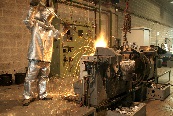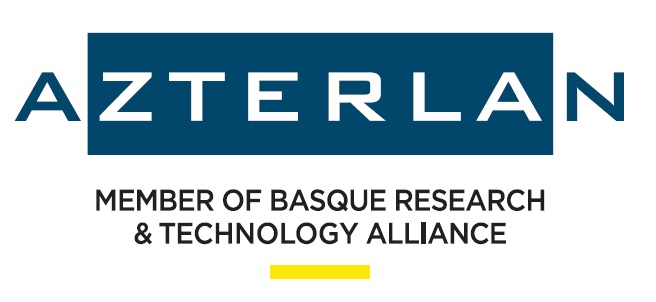Advanced transformation plant for the development of new materials and foundry technologies in a semi industrial level.

DESCRIPTION
The advanced transformation unit is fully equipped for melting operations, chemical composition adjustment, melt treatments, and casting using sand or metallic molds. It also supports vacuum-assisted and protective atmosphere processes, all under precise engineering control. The benefits of the new alloys are demonstrated through the characterization of specially designed test castings. Demonstrators and prototypes are produced using customized Fe-, Al-, Cu-, Ni-based metal alloys. Starting from a 3D design, castings can be delivered in the as-cast condition, heat-treated, and/or machined, according to specific requirements.
MOST OUTSTANDING EQUIPMENT AND COMPONENTS
Ablation/Hydrosolidification UnitEquipment for manufacturing water-soluble sand cores and/or molds. The ablation cell is equipped with various nozzles which allow directing and significantly accelerating the solidification velocity and thus the microstructure. The equipment is applicable for all types of metal alloys.
Porous plug and rotating rotor (FDU) with deflector plate for deoxidation and degassing in liquid state. Vacuum equipment to facilitate the filling of molds or reduce gas entrapment.
- Cryogenic chamber up to load of 600 kg with cycles between -196°C and +200°C.
- 4 furnaces for heat treatments from room temperatures up to 1500°C: different variants with vertical air circulation or forced air, with overpressure cooling, suitable for cycling up to 800°C; or air circulation under a protective atmosphere up to 1500°C.
- equipment for temperature profile measurement in heat furnace units with difficult accessibility using telemetry (Datapaq TB4270) with 10 Type K channels up to 1300°C.
- Sealed chambers for use in heat treatments in a controlled atmosphere.
100 kg medium-frequency melting furnaces for cast iron and steel, 2-40 kg electric melting furnaces for aluminum alloy, and a melting furnace with vacuum control and protective atmosphere with 20 kg of capacity for steels, Ni-base superalloys, etc.)
The quality of cast alloys is ensured through chemical composition analysis (spark spectrometer, ICP, portable X-ray, etc.) and metallurgical controls such as Thermolan® tests, Macroinclusion Test, D80, Alu-Q, etc. Stereographic Microscope, optical microscopy, and scanning electron microscopy (SEM).
SERVICES OFFERED BY THE ASSET

Development and validation of new base Fe-, Al-, Cu-, Ni-based metal alloys

Development of new casting technologies

Manufacturing of lightweight components and/or high benefits by hyidrosolidification/ablation

Manufacturing of wear resistance components

Optimization of valuation processes and recycling of critical metals
ENTITY MANAGING THE ASSET

FUNDACIÓN AZTERLAN
Contact person: Jon Garay


